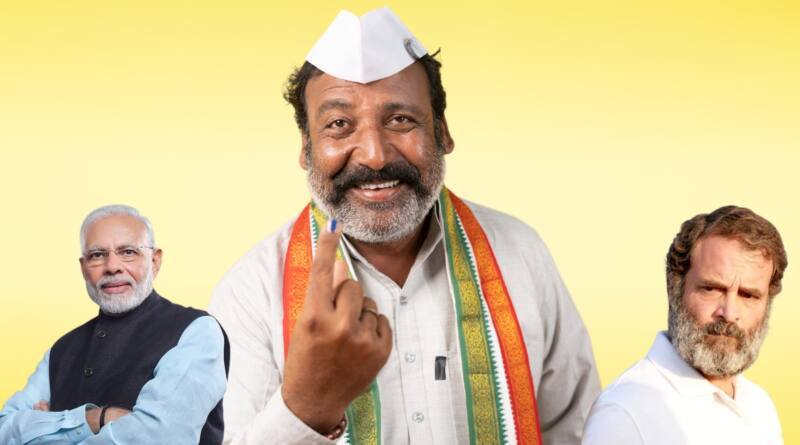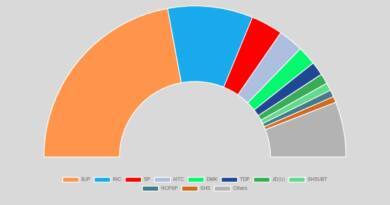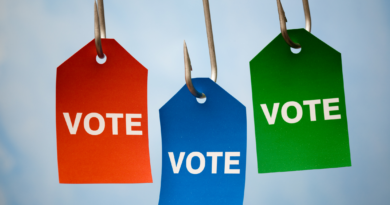Revealing The Indian Election 2024: All You Need To Know
A complete guide to the 2024 Indian general election
The people of India have given their verdict and decided who’ll be in Parliament representing them.
If the NDA forms the government, Narendra Modi, with his third consecutive term as Prime Minister, will become the second PM in the history of independent India, following Nehru.
According to the results, it appears that Modi’s Bharatiya Janata Party is projected to secure the highest number of parliamentary seats, although it falls short of an absolute majority. It is probable that forming a government will require the support of smaller parties in its coalition. The B.J.P. faced an unexpected setback, leaving many surprised by the outcome.
The Indian National Congress, the main opposition, has exceeded expectations with its performance. Following substantial losses in the previous two elections, many perceived the party as significantly weakened. The Congress and its allies expanded their lead over Modi by focusing on key issues such as unemployment, social justice, and the prime minister’s connections with India’s billionaires.
The Election Commission of India has announced the results for 542 out of the 543 Lok Sabha constituencies. The Bharatiya Janata Party (BJP) has emerged victorious in 240 seats, while the Congress has secured 99 seats.
The outcome for the Beed constituency in Maharashtra is still pending, with NCP candidate Bajrang Manohar Sonwane currently in the lead over the BJP’s Pankaja Munde. In the Lok Sabha, there are a total of 543 members. However, the counting process was conducted for only 542 seats, as the BJP’s Surat candidate, Mukesh Dalal, was elected without any opposition.
Based on the recently announced results, it appears that Prime Minister Narendra Modi is set to secure a third consecutive term in office, as the BJP-led National Democratic Alliance (NDA) has obtained a majority in the Lok Sabha. This outcome comes despite significant setbacks in three key Hindi heartland states, following a fiercely contested election that was widely seen as a test of Modi’s popularity.
The BJP, with candidates running under the banner of Modi, secured victory in 240 seats, which falls short of the 272 majority mark required for government formation. To achieve a majority, the BJP will need the support of allies within the party-led NDA. This outcome is a significant departure from the party’s previous electoral successes in 2019 and 2014, where it won 303 and 282 seats, respectively, enabling it to have a majority on its own. The NDA, with the backing of important allies such as N Chandrababu Naidu’s Telugu Desam Party (TDP) and Nitish Kumar’s JD (U), who secured 16 and 12 seats in Andhra Pradesh and Bihar, respectively, along with other alliance partners, managed to surpass the required majority.
In the recent elections, the Congress, a prominent member of the opposition INDIA bloc, managed to secure 99 seats, a significant increase from the 52 seats it won in 2019. This impressive performance by the Congress has notably impacted the BJP’s position in Rajasthan and Haryana. The Samajwadi Party played a crucial role in boosting the morale of the INDIA bloc in Uttar Pradesh by securing 37 seats. Meanwhile, the Trinamool Congress (TMC), a significant member of the opposition alliance, surpassed its 2019 performance by winning 29 seats in West Bengal. In the previous Lok Sabha elections, the BJP secured 18 seats, but this time around, their tally has decreased to 12 seats.
The election results fell short of the resounding victory anticipated by the BJP-led NDA and predicted by the exit polls.
The world’s largest democratic exercise saw the meticulous counting of a staggering 640 million votes. This monumental task spanned a period of seven phases, commencing on April 19 and concluding on June 1.
Let us have a detailed look into the mechanism or system.
Electoral System
- Constitutional Requirement: Lok Sabha elections every five years (Article 83).
- Voting Method: 543 MPs elected via first-past-the-post from single-member constituencies.
- 104th Amendment: Abolished two seats reserved for Anglo-Indians.
- Voter Eligibility: Indian citizens, 18+, registered, with a valid voter ID. Convicts and foreign citizens are banned. No postal or online absentee voting; must vote in person.
- 2024 Election: 968 million eligible voters (up by 150 million from 2019). Unique polling stations include remote locations and relief camps.
- Supreme Court Ruling: Rejected the Congress Party’s petition to replace electronic voting machines with paper ballots.
- Logistics include 5.5 million electronic voting machines, over one million polling stations, 15 million election workers, and security personnel.
- Special Provisions: Home voting for the disabled and elderly (85+); extended voting hours in Telangana.
Planning
- Key Processes: Monitor campaign expenditure, prevent illicit goods circulation, and ensure adherence to the Model Code of Conduct.
- Campaign End: We take measures to maintain order and prevent disruptions; campaigns end 48 hours before voting.
- Polling Day: Strict rules to prevent undue influence and ensure a smooth and secure process.
- Security Measures: Electronic Voting Machines (EVMs) are sealed and stored securely.
- Voter Assistance: Booth officers assist voters.
Welfare
- BJP’s Focus: Delivering government schemes and ensuring last-mile delivery to bolster electoral support.
- Key Strategies: Direct cash transfers and provision of essentials (toilets, cooking gas, houses, bank accounts).
- Implementation: Over 300 federal welfare schemes since 2014, with more than 34 trillion rupees ($400bn) spent, benefiting over 900 million people.
- Major Initiatives: Pradhan Mantri Awas Yojana (housing), the world’s largest cash transfer program for farmers, free cooking gas, electricity, and piped water schemes.
- Promotion: Marketed as personal guarantees from Prime Minister Modi, targeting low-income households.
- Impact: Welfare policies credited with attracting voter support, especially among women, by increasing access to essential services.
Unemployment
- High Unemployment: India has a 45-year high unemployment rate, particularly among youth. In 2022, youth unemployment was 23.2%, and national unemployment was around 7%. In 2023, 42.3% of graduates were unemployed.
- Election Issue: Unemployment is a key issue in election campaigns. The opposition (INDIA bloc) criticizes the BJP’s handling of the economy, highlighting rising unemployment and inflation.
- INDIA Bloc Promises: The Congress-led bloc’s youth manifesto includes filling three million government job vacancies and introducing the “Right to Apprenticeship,” which guarantees one year of employment and ₹100,000 salary for diploma and degree holders up to age 25. This scheme has faced criticism for potentially prioritizing hiring over merit and skill.
- BJP’s Counter: The BJP emphasizes India’s global prominence and new social security programs for the poor, like free food grains and health insurance. Prime Minister Modi highlights business-friendly policies, claiming initiatives like Startup India and infrastructure projects have created jobs in the informal economy. He disputes opposition figures, asserting unemployment has decreased in recent years.
Sectarianism
- Ram Mandir Pamphlet: BJP distributed pamphlets for the Ram Mandir Inauguration to connect with families nationwide.
- Hindutva Movement: The consecration of the Ram Mandir in Ayodhya marked a new era of Hindu nationalism, driven by the Hindutva movement.
- Political Fulfillment: Prime Minister Modi fulfilled a long-standing BJP pledge by reconstructing the Ram Mandir, appealing to the Hindu population.
- Support Base: Modi and the BJP’s Hindu nationalist ideology has garnered substantial support from the Hindu community.
- Bollywood Influence: Bollywood has produced films supporting BJP policies and Hindu nationalist themes.
- BJP Acknowledgement: BJP spokesperson Mmhonlumo Kikon acknowledged threats related to sectarianism, but stated that the party is working to address them.
- Opposition Controversy: The Congress Party and its leaders declined the Ram Mandir consecration ceremony invitation, criticizing it as a politicized BJP-RSS event.
Electoral Bonds
- Supreme Court Ruling: On 15 February 2024, the Supreme Court declared the Electoral Bond system unconstitutional, citing donor influence over policymaking.
- Record Disclosure: By 18 March, the State Bank of India (SBI) was ordered to provide all electoral bond records to the Election Commission, rejecting industry pleas to keep donor identities secret.
- Major Donors: Leading donors include Vedanta Limited, Bharti Airtel, RPSG Group, and Essel Mining, with the BJP receiving nearly half of all donations.
- Donation Totals :
- BJP: Rs 6,060.5 crore
- TMC: Rs 1,609.5 crore
- Congress: Rs 1,421.8 crore
- BRS: Rs 1,214.7 crore
- BJD: Rs 775.5 crore
- Top buyers:
- Santiago Martin (Future Gaming and Hotel Services): Rs 13.68 billion
- MEIL (Megha Engineering and Infrastructure Limited): Over Rs 12 billion
- Opposition Criticism: Electoral Bonds labeled a “scam” and “extortion racket” by opposition politicians.
- BJP Defense : Spokesperson Syed Zafar Islam claimed the bonds were gained “on merit”.
- Concerns: Observers noted potential bribery or government extortion, as data revealed companies donated around the time they received major government contracts, with many top donors under investigation by government agencies.
Bharatiya Janata Party
- National Executive Meeting: Held on 16-17 January 2023, reaffirming faith in Prime Minister Modi and extending BJP national president J. P. Nadda’s tenure.
- Modi’s Strategy: Modi urged party workers to reach out to all sections of society, including marginalized and minority communities, “without electoral considerations”.
- Election Slogans :
- “Modi Ki Guarantee”: Introduced after the 2023 Legislative Assembly elections.
- “Abki Baar 400 Paar”: Aiming to surpass 400 out of 543 Lok Sabha seats.
- Political Rallies: Multiple rallies held with national leadership including Modi, Nadda, and Amit Shah.
- Campaign Rhetoric:
- Yogi Adityanath framed the election as a battle between “devotees of Ram” and “anti-Ram forces”.
- Modi accused the opposition of planning to destroy the Ram Mandir temple and prioritizing Muslim access to national wealth.
- Controversies :
- Modi’s remarks led to complaints and demands for arrest and campaign suspension.
- BJP’s Instagram video showing Rahul Gandhi with the symbol of the All-India Muslim League was taken down after backlash.
- Complaints filed against Modi for violating the Model Code of Conduct and instigating communal hatred.
Indian National Developmental Inclusive Alliance
- Joint Rally in Patna: Held on 3 March 2024, featuring Congress president Mallikarjun Kharge, Rahul Gandhi, Lalu Prasad Yadav, Tejashwi Yadav, Akhilesh Yadav, and senior Left leaders Sitaram Yechury and D. Raja. Kharge criticized Nitish Kumar for frequent alliance changes and BJP for unfulfilled job promises and neglecting the poor.
- Mumbai Rally: Joint rally at Shivaji Park on 17 March, attended by Rahul Gandhi, Uddhav Thackeray, Sharad Pawar, Tejashwi Yadav, and M. K. Stalin. Gandhi launched Bharat Jodo Nyay Yatra due to rising inflation and unemployment.
- Protest Rally in Delhi: Held on 31 March at Ramlila Maidan after the arrest of Arvind Kejriwal in the alleged Delhi liquor scam. Opposition leaders condemned the arrest as politically motivated and framed the election as “democracy vs dictatorship”.
Indian National Congress
- Campaign Launch: Launched from Nagpur on 28 December 2023, marking the 138th Congress Foundation Day. Over 1 million people were expected to attend, energizing party cadres for the 2024 general election.
- Bharat Jodo Nyay Yatra: Launched on 14 January, starting in Thoubal, Manipur, and ending in Mumbai on 16 March 2024. Covered 6,713 kilometers across 14 states.
- Rahul Gandhi’s Warning: Gandhi warned of potential unrest if BJP wins the 2024 elections and changes the Constitution during an address at Delhi’s Ramlila Maidan.
Crowdfunding
- Campaign Launch: Congress initiated a crowdfunding campaign called “Donate for Desh” ahead of the general elections. Digital version launched on 18 December 2023, with a dedicated website. Inspired by Mahatma Gandhi’s Tilak Swaraj Fund (1920–21). Physical collection via door-to-door drives launched on 28 December.
- Initial Response: Received ₹1.45 crore (US$180,000) on the first day, with top donor states being Maharashtra, Rajasthan, Uttar Pradesh, Delhi, and Karnataka.
- End of 2023: Accumulated around ₹9 crore (US$1.1 million), with 30% of funds from Telangana and Maharashtra alone.
- Rebranding: Rebranded to “Donate for Nyay” on 28 January, aligning with Rahul Gandhi’s Bharat Jodo Nyay Yatra. Collected 4 crores in 4 days during the ensuing campaign.
Funding Issues
- Allegations by Congress: On 16 February 2024, the Congress Party alleged that the Income Tax Department (IT) froze bank accounts containing 2.1 billion rupees ($25.3 million) due to an ongoing legal dispute. Tax authorities imposed a 2.1-billion rupee lien on 13 February, seizing 1.1 billion rupees ($14 million).
- Impact on Campaign: Congress leader Rahul Gandhi stated that the restrictions hindered the party’s campaigning efforts, accusing Modi and Home Minister Amit Shah of conducting criminal actions against the party.
- Response by BJP: BJP denied the accusations, with Sonia Gandhi alleging the tax issues are part of systematic efforts to cripple the party. An appeal is pending in the Supreme Court.
- IT Department’s Response: Official sources from the IT Department stated that they recovered ₹135 crore from Congress for breaking tax exemption laws for political parties, refuting claims of freezing bank accounts. Congress received notices on 29 March to pay ₹1,823.08 crore ($228 million).
- Congress Counterclaim: Congress accused BJP of “tax terrorism” and serious violations of income-tax laws, demanding a ₹4,617.58 crore ($578 million) demand from BJP for such violations.
Communist Party of India (Marxist)
Campaign Start: Started election campaign in Kerala after announcing 15 candidates in the state.
Rashtriya Janata Dal
Jan Vishwas Yatra: Launched on 20 February 2024 from Muzaffarpur in Bihar by RJD leader Tejashwi Yadav. Covered 33 districts, with Yadav criticizing BJP as “a dustbin” for other parties.
Aam Aadmi Party
- Investigations: Authorities investigated opposition state officials like Arvind Kejriwal (AAP) for alleged corruption in liquor license allocation and Hemant Soren (Jharkhand CM) for facilitating illegal land sale. Enforcement Directorate is also probing four non-BJP chief ministers.
- Kejriwal’s Arrest: Arrested on 21 March over liquor license scam charges, sparking clashes and accusations of political conspiracy by AAP leaders. Kejriwal accused a “scared dictator” of undermining democracy.
- BJP Tactics : BJP allegedly uses Enforcement Directorate raids to target critical opposition leaders. Many opposition leaders facing corruption charges have joined BJP, with inquiries closed or frozen post-joining.
- Congress Comparison: Congress likened the trend to a “washing machine” in campaign videos.
Shiv Sena
Electoral Symbol Dispute: Supreme Court barred Shiv Sena (UBT) faction from using party’s historic bow-and-arrow symbol in elections, awarding it to the Balasahebanchi Shiv Sena wing which joined NDA. UBT faction adopted a torch as its electoral symbol.
Bharatiya Janata Party Manifesto
- ‘GYAN’ Formula: Consisting of Garib (poor), Yuva (youth), Annadata (farmers), and Nari (women).
- Public Recommendations Campaign: Gathering public suggestions for the party’s manifesto titled ‘Modi ki guarantee’.
- Key Pledges:
- Nari Shakti Vandan Adhiniyam: Ensuring women’s representation in legislatures.
- Lakhpati Didi: Empowering 30 million rural women to become “Lakhpati Didis”.
- Free Ration: Providing 800 million citizens with free rations for five years.
- MSP Increase: Periodic increase in Minimum Support Price for crops.
- PM Kisan Samman Nidhi Yojana: Providing annual financial support of 6,000 rupees.
- Free Electricity: Free power for low-income homes under PM Surya Ghar Muft Bijli Yojana.
- PM Housing Scheme: Building 30 million houses with priority for people with disabilities.
- Youth Initiatives: Enacting laws against question paper leaks, expanding startup ecosystem, increasing job prospects in manufacturing and tourism.
- Infrastructure for Truck Drivers: Constructing modern facilities on national highways.
- One Nation, One Election: Simultaneous elections for Lok Sabha and state assemblies.
- Uniform Civil Code: Implementation of Uniform Civil Code (UCC).
- Free Ayushman for Senior Citizens: Providing free healthcare up to Rs 5 Lakhs under Ayushman Bharat Yojana.
- Economic Goals: Targeting GDP of US$5 trillion by 2025 and $10 trillion by 2032.
- UN Security Council: Seeking permanent membership in the UN Security Council.
- Counterterrorism Measures: Initiatives to eliminate global terror and terror funding.
- Left-Wing Extremism: Fighting extremism through growth and varied approaches.
- Space Exploration: Establishing a permanent Bharatiya Antariksha Station and sending a man to the moon.
Indian National Congress Manifesto Summary
- Group-Specific Promises:
- Youth: Formal employment for under 25 graduate students, filling of government job vacancies, startup fund, transparency in job recruitment, social security for gig workers.
- Women: Financial assistance to poor women, job recruitments, increased government contributions, legal assistance, hostels for working women.
- Farmers: Legal guarantee on MSP, loan waivers, favorable import-export policies, GST removal, prompt payments.
- Labourers: Universal healthcare, increased minimum wage, urban employment guarantee, insurance for informal workers.
- Caste Census: Comprehensive census, legislation to eliminate reservation cap, protection of tribal forest rights.
- Wealth Redistribution: Pledge to redistribute wealth based on census data of wealthiest citizens.
- Nyay Patra (Justice Paper) :
- Recognition of civil unions for LGBTQIA+ couples.
- Implementation of Rajasthan Model for universal healthcare.
- Ban on effluent dumping, increase in forest cover.
- Establishment of community and multi-sport centers.
- Government medical colleges-hospitals in all districts.
- Scrapping of Agnipath Scheme, waiving student education loans.
- Inclusivity in parliamentary agenda discussion, personal freedoms protection.
- Decriminalization of defamation, establishment of National Judicial Commission.
- Creation of Constitutional Court and Court of Appeal in Supreme Court.
- Elimination of “Angel tax” and exploitative tax schemes for startups.
Observers
- BJP invited foreign diplomats and 25 overseas political parties to observe their electoral campaign.
- Notable invitees included UK’s Conservative and Labour parties, Germany’s CDU and SPD, and Bangladesh’s Awami League.
- Initiative named “Know BJP” aimed at external outreach and familiarization with the election process.
- BJP president J. P. Nadda held meetings with envoys from 13 countries as part of the program.
Voting Summary:
– Phase 1 (19 April 2024):
- Re-polling in 11 polling stations of Inner Manipur on 22 April due to violence.
- Re-polling in eight polling stations in Arunachal Pradesh on 24 April due to violence and EVM damage.
– Phase 2 (26 April 2024):
- Re-polling for a polling station in Chamarajanagar on 29 April due to violence and EVM damage.
- Re-polling for six polling stations in Outer Manipur on 30 April due to violence, EVM damage, and forced voting.
- Re-polling for a polling station in Ajmer on 2 May due to misplaced voters’ register.
– Phase 3 (7 May 2024):
- Voter turnout reached 65.68%.
- 24 crore citizens eligible to vote.
– Phase 4 (13 May 2024):
- 96 constituencies voted.
– Phase 5 (20 May 2024):
- 49 constituencies voted.
– Phase 6 (25 May 2024):
- 58 constituencies voted.
– Phase 7 (1 June 2024):
- 57 constituencies voted.
- Repolling in one booth each in Barasat and Mathurapur constituencies of West Bengal on 3 June due to violence.
Incidents during Voting Phases
Phase 1:
- Violence in Thamanpokpi, Manipur.
- Clashes between BJP and TMC workers in West Bengal.
- Death of a CPRF personnel in Cooch Behar, West Bengal.
- Death of a CPRF personnel in Chhattisgarh.
- Clashes between VCK and BJP cadres in Tamil Nadu.
Phase 2:
- Eight voters died of heat stroke in Kerala.
- Attack on CPRF personnel in Manipur.
- Gunfight between unidentified groups in Manipur.
- Incidents of EVM vandalism and voter intimidation in Manipur.
Phase 6:
- Detention of Mehbooba Mufti’s party workers in Jammu and Kashmir.
- Blocking of BJP candidate Agnimitra Paul’s car in West Bengal.
Phase 7:
- Mob looting election material in West Bengal.
- Clashes between BJP and TMC supporters in West Bengal.
- Deaths of election workers due to heat stroke in Uttar Pradesh.
- Election-related deaths reported in Bihar.
Misinformation:
- Circulation of manipulated video of Home Minister Amit Shah.
- Viral deepfake videos of Bollywood actors Aamir Khan and Ranveer Singh.
- Arrest of Arun Reddy for producing a doctored video of Amit Shah’s speech.
- Report by OpenAI implicating the Israeli firm STOIC in generating biased comments related to Indian politics.
It’s unfortunate to see instances of violence, manipulation, and misinformation surrounding the election process. Such incidents undermine the integrity of the democratic process and highlight the importance of responsible behavior from all parties involved.
In conclusion, the 2024 general elections in India have been marred by incidents of violence, voter intimidation, and misinformation. From clashes between political party workers to tragic deaths due to heat stroke, these events underscore the challenges facing India’s democratic process. Moreover, the spread of manipulated videos and the involvement of external entities in generating biased comments online further highlight the need for vigilance in safeguarding the integrity of elections.
Despite these challenges, it’s imperative that authorities, political parties, and citizens remain committed to upholding the principles of democracy and ensuring a fair and transparent electoral process.
The election result reportedly surprised Prime Minister Modi, as the BJP fell short of its ambitious goal of securing 400 seats. Contrary to pre-poll predictions, the INDIA bloc surpassed expectations and achieved significant victories in key states like Uttar Pradesh, Maharashtra, and West Bengal.
Narendra Modi hailed the NDA’s lead as a significant milestone in India’s history, while Congress Party president Mallikarjun Kharge characterised the election as a setback for Modi and a triumph for democracy and the people. During a speech to his supporters on June 4, Modi confidently declared that the NDA would once again secure victory and form a third consecutive government.




